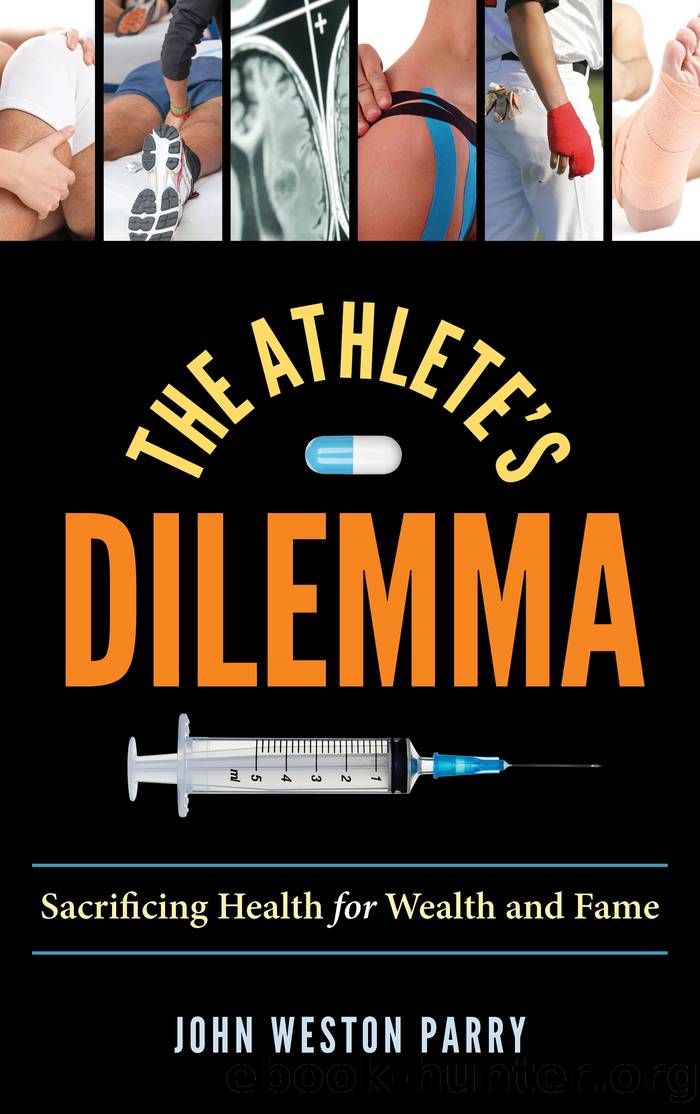The Athlete's Dilemma by John Weston Parry

Author:John Weston Parry
Language: eng
Format: epub
Tags: undefined
Publisher: Rowman & Littlefield Publishers
Published: 2012-12-15T00:00:00+00:00
Settlement Misgivings
Since the judge had not yet given her âpreliminary approval,â there was room for both sides to maneuver, which led to âgrowing discontent on multiple fronts,â[21] especially with former players. As often happens with large settlements, some members of the classâand others who were not part of that classâbegan to publicly express misgivings. Much of their angst was spurred on by the repeatedly expressed belief within the legal community that lawyers for the former players had negotiated for too little. Since a deal already had been struck between the parties, the only good faith way for the plaintiffsâ attorneys to rectify any perceived shortcomings was to contest aspects of the settlement that remained in fluxâor could be placed in fluxâor to drop out of the settlement altogether.
The first major reported disagreement, which emerged in December 2013, involved payments to the attorneys. Normally in these types of cases plaintiffsâ lawyers work on a contingent fee basis. They receive a substantial share of any award or settlement, which can be as much as 33 percent of the proceedsâand sometimes even more than that. On the other hand, those lawyers receive almost nothing, except certain designated expenses, if their client loses.
The former players and their families claimed that they had been under the impression that the $765 million award would not include attorneysâ fees, which Judge Brody would add to the settlement total later. Not only was that perception incorrect, but reportedly âsome lawyers st[ood] to receive multiple paydaysâ for the same work that they did on the case for different clients. While âdouble-dipping . . . [is] not prohibit[ed] . . . , courts generally frown upon the practice,â[22] and often exercise their discretion to limit such payments.
Second, a number of the âfamilies of players who were diagnosed with football-related brain damage after they had diedâ and had been âcut out of the settlementâ as a result decided to sue the NFL in California Superior Court.[23] This included the families of Mike Webster and Junior Seau. In addition, living former players, including former Dallas Cowboys quarterback Craig Morton, had filed separate actions, as did Hall of Fame quarterback Dan Marino soon after CBS fired him as an NFL analyst.
It was no coincidence that none of the former NFL players who were being paid by the various networks that broadcast, give opinions about, or analyze NFL football were publicly identified in this litigation as plaintiffs. One might have concluded that this reluctance was due to their loyalty to the NFL, which ultimately provided the networks with the money that was being used to hire and retain these former players. The stronger incentive, however, appeared to be that these former players feared retaliation, since the league could apply economic pressure on the networks to fire these employees or diminish their roles. That is what CBS had done to the popular golf analyst Gary McCord after the men who ran Augusta National and the Masters objected to his humorous and deprecating commentary about the event.
Download
This site does not store any files on its server. We only index and link to content provided by other sites. Please contact the content providers to delete copyright contents if any and email us, we'll remove relevant links or contents immediately.
Spare by Prince Harry The Duke of Sussex(5175)
Machine Learning at Scale with H2O by Gregory Keys | David Whiting(4292)
Fairy Tale by Stephen King(3370)
Will by Will Smith(2907)
The Bullet Journal Method by Ryder Carroll(2561)
Hooked: A Dark, Contemporary Romance (Never After Series) by Emily McIntire(2547)
Rationality by Steven Pinker(2352)
It Starts With Us (It Ends with Us #2) by Colleen Hoover(2340)
Can't Hurt Me: Master Your Mind and Defy the Odds - Clean Edition by David Goggins(2323)
Friends, Lovers, and the Big Terrible Thing by Matthew Perry(2219)
The Becoming by Nora Roberts(2188)
Love on the Brain by Ali Hazelwood(2059)
A Short History of War by Jeremy Black(1842)
The Strength In Our Scars by Bianca Sparacino(1840)
HBR's 10 Must Reads 2022 by Harvard Business Review(1839)
Leviathan Falls (The Expanse Book 9) by James S. A. Corey(1726)
A Game of Thrones (The Illustrated Edition) by George R. R. Martin(1720)
515945210 by Unknown(1660)
Bewilderment by Richard Powers(1607)
